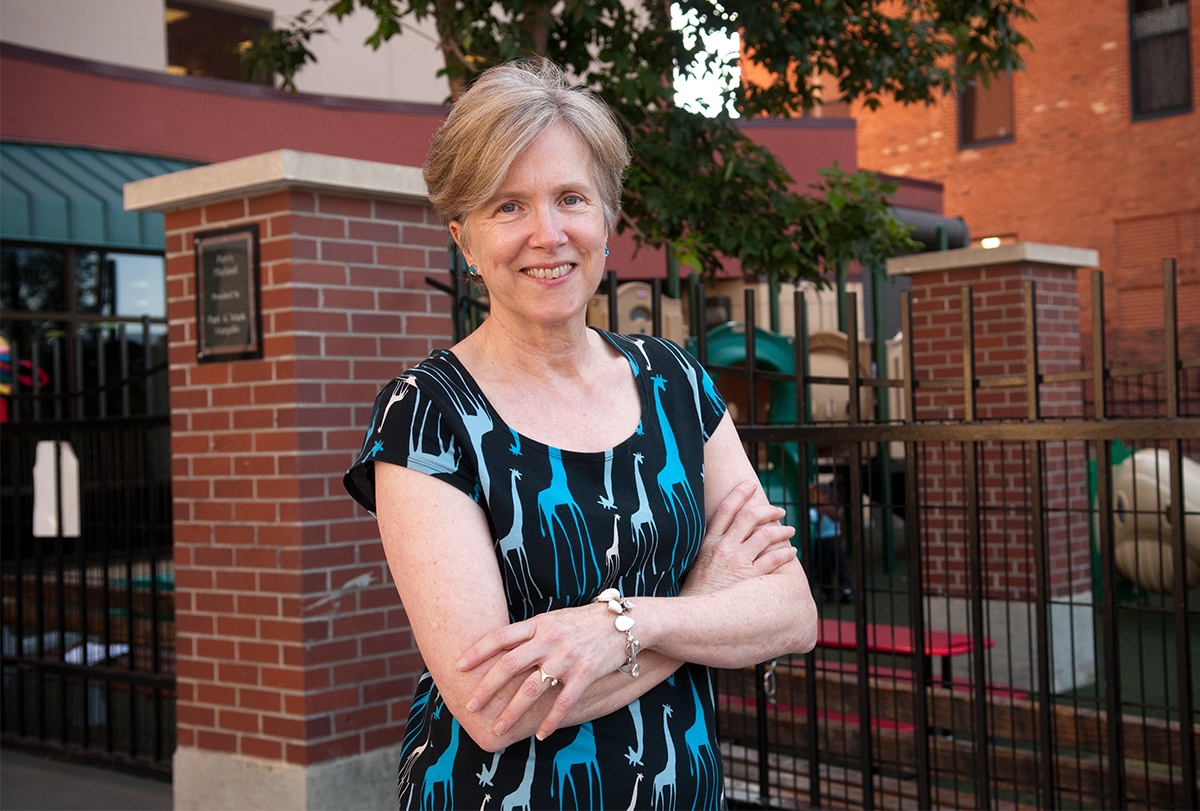Ann Masten grew up on the move. As a member of a military family, she lived in Japan, Germany, and all over the United States. While the frequent relocations were at times challenging, they planted the seed for what would become Masten’s academic calling: discovering how to help children cope with change and overcome adversity.
“I knew children whose parents were lost in war, and my father was deployed in Vietnam,” explains Masten, a professor in the Institute of Child Development (ICD). “I had a supportive family, and my parents talked about moving as an adventure. All that moving not only influenced what I was drawn to as a scientist but also created a deep appreciation for cultural differences and similarities.”
For more than 30 years, Masten has worked to identify ways to foster healthy development in children who have faced poverty, homelessness, war, and natural disasters so they are prepared for learning and life.
Her groundbreaking research on resilience, or the capacity to overcome serious threats to development, has earned Masten national and international recognition. In 2014, she was named a Regents Professor, the University’s highest faculty honor.
Promoting achievement
Masten directs the Project Competence Studies of Risk and Resilience. Among them is the Project Competence Longitudinal Study, which she helped launch as part of a team led by renowned psychology professor and resilience pioneer Norman Garmezy. As one of the first longitudinal studies on development and resilience, it has now followed a group of children and their families for more than 20 years.
Recently, Masten’s research has focused on school success for homeless and mobile children and how to best target interventions.
“Over time, I’ve tried to foster a shift in the way we think about children at risk—from a focus on problems to a focus on strengths and promoting successful development,” says Masten.
For example, she has piloted “Ready? Set. Go!”—an intervention that aims to equip at-risk preschool students with the skills they need to succeed in the classroom, such as paying attention, controlling impulses, and waiting their turn.
‘Ordinary magic’
What causes a child to be resilient? The answer is what Masten calls “ordinary magic.” Resilience is common, she says, and tied to the support structures and interactions children encounter every day.
“The resilience of an individual depends on the resilience of the other systems they are connected to,” she says. “The younger children are, the more dependent they are on the adults who are caring for them.”
In her 2014 book by the same name, Masten synthesizes what’s known about resilience and explores how to foster these common systems and resources that help children weather adverse experiences.
A home for students
In addition to her contributions to the child development field, Masten has been an advocate and committed mentor for students and others in ICD, which she directed for several years.
“I had a famously wonderful mentor in Garmezy when I arrived,” Masten explains, noting that he sought to build relationships within his local and academic communities. “When you receive mentoring like that, not only does it provide a role model for how to mentor others, but you feel an obligation to pass it on.”
When asked to describe the Masten Lab of Risk and Resilience, Masten’s face lights up.
“I try to think of my research group as both a social and a science center,” she says. “I want it to be a comfortable, warm place to be and to foster a collaborative spirit. The more people hang out, the more they learn. I encourage older students to pass on their knowledge.”
From research to practice
Looking ahead, Masten would like to move resilience science into practice and policy in partnership with collaborators around the world.
“I’ve been drawn to advising and consulting on war and natural disasters, where many systems are affected at once,” she says. “If we’re going to support resilience in children, we need to support the systems that support children.”
As one way to convene global stakeholders, Masten is leading a massive open online course this year, which will provide basic information about resilience and how it can be promoted in different situations to help children.
“Children can’t wait—they need help now,” she says. “We’ve learned a lot about resilience already, and there are general principles we can apply in our lives and work.”
Read more about Ann Masten and the Institute of Child Development.
To learn more about resilience science and its global applications, register for Masten’s massive open online course, “Resilience in Children Exposed to Trauma, Disaster and War: Global Perspectives.”
Story by Cassandra Blohowiak | Photo by Dawn Villella | December 2016
 Regents Professor Ann Masten
Regents Professor Ann Masten